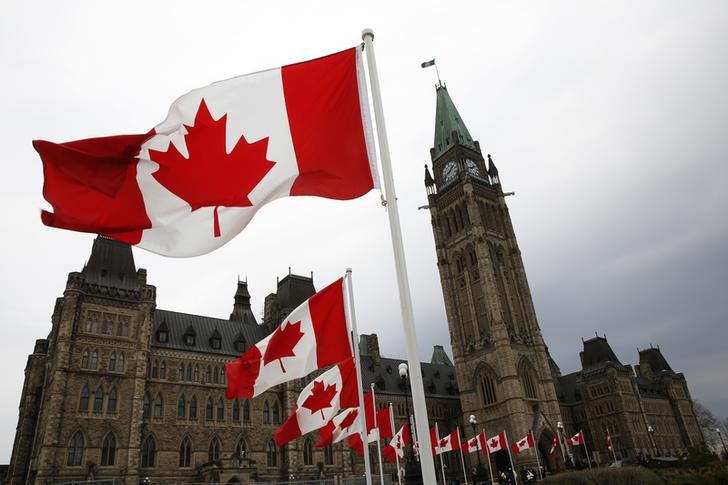(Adds result of first round of voting)
By Andrea Hopkins
OTTAWA, May 27 (Reuters) - Canada's official opposition Conservative Party is set to elect a new leader on Saturday, seeking to regroup and re-brand itself as it gears up for the 2019 election race against Prime Minister Justin Trudeau's still-popular Liberals.
The race has had moments of Trump-like populism with a reality TV star and a candidate critical of immigration getting early attention. But three mainstream politicians have emerged as front-runners, suggesting the wave of populism that swept Donald Trump to the U.S. presidency in November will not extend to Canada.
The race between 13 candidates is too close to call but the winner faces a battle to reunite the right-of-center party that held power for nearly a decade under former Prime Minister Stephen Harper before the center-left Liberals won a shock majority in 2015.
Former foreign minister Maxime Bernier, one of the favorites, took a narrow lead after the first round of voting. The race is determined by calculating support from both delegates and Conservative associations in every one of Canada's 338 parliamentary constituencies.
Multiple ballot counts are required for one candidate to win a majority of votes. Bernier gathered 29 percent of party support after the first round, with former House of Commons Speaker Andrew Scheer on 22 percent.
Bernier might be best known to the wider public for resigning from Harper's cabinet in 2008 after leaving confidential documents at the house of a girlfriend with links to organized crime. to a Nanos poll, Trudeau is the preferred choice as prime minister among 46.3 percent of Canadians, far ahead of other Canadian party leaders.
"The challenge will be to attack Justin Trudeau's weaknesses, but also to bring Conservatives who have left the party back into the fold," said Queen's University political science professor Jonathan Rose.
Bernier was bolstered in late April when front-runner Kevin O'Leary, a reality TV star and businessman, withdrew from the race and threw his support behind him.
Like Trudeau, Bernier is from Quebec, the predominantly French-speaking province which holds 78 of the 338 seats in the House of Commons and is vital to a party's prospects.
None of the candidates has the high profile of Trudeau, whose approval ratings have faltered after nearly two years in office but remain higher than any opponent on the left or right, despite rising dissatisfaction with the economy and a series of spending and entitlement controversies.
"For Conservatives, it is really all about the economy," said Darrell Bricker, pollster with Ipsos Public Affairs. "If the Conservative Party doesn't have a strong lead over the Liberals on the question of which party has the best economic plan, it will struggle."
To win, Bricker said the new leader must rebuild strength in rural and Western Canada as well as the vote-rich suburbs in Ontario. And he argues they don't need a leader with the charisma of Trudeau.
